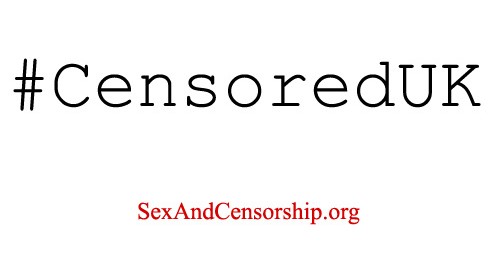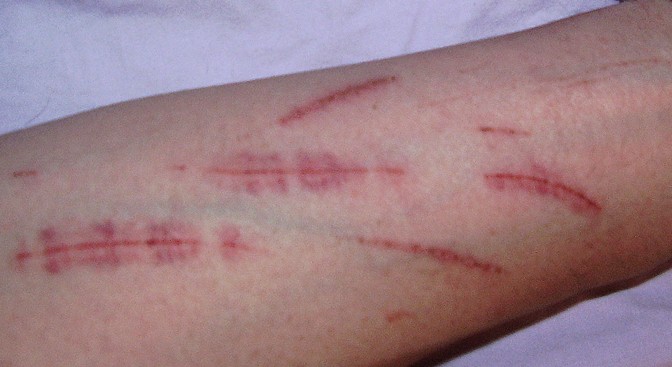While we at Sex & Censorship are following – with increasing trepidation – the endless drift towards censorship in the UK, we’re sometimes reminded that many of our supporters can’t keep up with all the news and events. That’s hardly surprising: Britain is currently experiencing wave after wave of moral panic, and it seems that hardly a week goes by without more bad news for free expression. So here is a brief round-up of some of the main issues comprising British censorship at present. I’ve undoubtedly missed stuff: feel free to add it below. Of course, a short blog post can’t hope to explain everything that’s taking place. I’m currently documenting British censorship in a book, Porn Panic: please join our mailing list to be alerted when this is published.
Law
- The Obscene Publications Act: the grandaddy of all censorship laws, outlawing the distribution of content that might “deprave and corrupt” its audience.
- Video Recordings Act: since 1984(!) the BBFC (a private organisation) has had the right to censor videos and DVDs, and they seem to have a particular problem with pornography, making UK video among the most censored in Europe.
- Protection of Children Act: originally designed to criminalise images of child abuse, but sometimes misused, even to harass viewers of legitimate pornography.
- Dangerous Cartoons Act: yes, you can become a sex offender for possessing a sexual cartoon featuring a character that might appear to be under-age – such as seen in popular Japanese anime cartoons.
- Extreme Porn Law: three years in jail for possessing images of what the government considers to be “extreme pornography” – even if they are images of yourself participating in consensual sex with your own partner.
- Rape Porn: a planned extension to the extreme porn law whereby you can be jailed for possessing an image of a sexual act that appears to be non-consensual (whether it is actually consensual or not). Quick, delete those bondage photos!
- Gagging law: no, it’s not about blowjobs: it’s a serious attack on the rights of political campaigning organisations to speak freely, disguised as a law to regulate lobbying.
Regulation
- Although they’ve never been mandated by Parliament or the British people to do so, Ofcom have consistently refused to allow hardcore sex on TV: even on adult channels at 3am. Almost all other EU countries, and the US, allow porn to be broadcast.
- A private body, ATVOD, has taken it upon itself to drive much of the online porn industry out of the country, or out of business, by mandating strict website guidelines that make profitable business effectively impossible. They claim an EU directive gives them this right, although strangely, none of the other 26 EU member states have taken this action, and erotic/sexual material continues to be sold legally elsewhere in Europe without such restrictions.
- Internet blocking: There were at least two attempts to introduce mandatory Internet censorship laws into Parliament last year; while these both failed, we expect similar laws to have more success in the near future.
ISPs
- Mobile networks: since 2004, mobile operators have voluntarily censored Internet access from phones until the owner proves they are over 18. This censorship covers all sorts of material, and many adults as well as teenagers are denied access to much of the Internet from their mobile phones.
- Broadband filtering: since December, ISPs have voluntarily begun to offer “porn filters” to home-owners, under the pretext of “protecting children”. However, these filters block, not just porn, but dozens of categories of content for entire households, and offer the bill payer a means of restricting Internet access for others in the same household.
Policing Speech
A raft of laws against “malicious communication” and “terrorism” have been used to jail people for speech alone. Increasingly, the important line between expression and action is becoming blurred in the eyes of the UK authorities. These days, writing can be considered terrorism, and jokes tweeted in poor taste can see you dragged into court.
Academia
There is a worrying trend towards increasing censorship within universities, which (one would have hoped) should be beacons of free expression, debate and discussion. For example, several student unions have banned the Sun newspaper, not for its dodgy news or political bias, but for displaying that most terrible thing, the female nipple.
What now?
Censored UK is a reality. We struggle with limited resources to expose these attacks on free expression, and campaign against those who try to push us even further in this direction. If any of this worries or outrages you, please donate to our campaign and help us restore some sanity!

